#AI education
Explore tagged Tumblr posts
Text

१०६.द्विभुजी लक्ष्मी
#Lakshmi#Laxmi#AshtaLakshmi#AshtaLaxmi#sanatandharma#hinduism#aiartcommunity#ai art#ai artwork#ai art gallery#ai#ai generated#anime#anime art#india#94shasha#animeedit#animeedits#bharat#ai artist#animelover#indiananime#ai enhanced#ai edit#ai edits#ai education#illustrator#illustration#AshtotarshatLakshmi#AshtotarshatLaxmi
9 notes
·
View notes
Text
AI is here – and everywhere: 3 AI researchers look to the challenges ahead in 2024
by Anjana Susarla, Professor of Information Systems at Michigan State University, Casey Fiesler, Associate Professor of Information Science at the University of Colorado Boulder, and Kentaro Toyama Professor of Community Information at the University of Michigan

2023 was an inflection point in the evolution of artificial intelligence and its role in society. The year saw the emergence of generative AI, which moved the technology from the shadows to center stage in the public imagination. It also saw boardroom drama in an AI startup dominate the news cycle for several days. And it saw the Biden administration issue an executive order and the European Union pass a law aimed at regulating AI, moves perhaps best described as attempting to bridle a horse that’s already galloping along.
We’ve assembled a panel of AI scholars to look ahead to 2024 and describe the issues AI developers, regulators and everyday people are likely to face, and to give their hopes and recommendations.
Casey Fiesler, Associate Professor of Information Science, University of Colorado Boulder
2023 was the year of AI hype. Regardless of whether the narrative was that AI was going to save the world or destroy it, it often felt as if visions of what AI might be someday overwhelmed the current reality. And though I think that anticipating future harms is a critical component of overcoming ethical debt in tech, getting too swept up in the hype risks creating a vision of AI that seems more like magic than a technology that can still be shaped by explicit choices. But taking control requires a better understanding of that technology.
One of the major AI debates of 2023 was around the role of ChatGPT and similar chatbots in education. This time last year, most relevant headlines focused on how students might use it to cheat and how educators were scrambling to keep them from doing so – in ways that often do more harm than good.
However, as the year went on, there was a recognition that a failure to teach students about AI might put them at a disadvantage, and many schools rescinded their bans. I don’t think we should be revamping education to put AI at the center of everything, but if students don’t learn about how AI works, they won’t understand its limitations – and therefore how it is useful and appropriate to use and how it’s not. This isn’t just true for students. The more people understand how AI works, the more empowered they are to use it and to critique it.
So my prediction, or perhaps my hope, for 2024 is that there will be a huge push to learn. In 1966, Joseph Weizenbaum, the creator of the ELIZA chatbot, wrote that machines are “often sufficient to dazzle even the most experienced observer,” but that once their “inner workings are explained in language sufficiently plain to induce understanding, its magic crumbles away.” The challenge with generative artificial intelligence is that, in contrast to ELIZA’s very basic pattern matching and substitution methodology, it is much more difficult to find language “sufficiently plain” to make the AI magic crumble away.
I think it’s possible to make this happen. I hope that universities that are rushing to hire more technical AI experts put just as much effort into hiring AI ethicists. I hope that media outlets help cut through the hype. I hope that everyone reflects on their own uses of this technology and its consequences. And I hope that tech companies listen to informed critiques in considering what choices continue to shape the future.
youtube
Kentaro Toyama, Professor of Community Information, University of Michigan
In 1970, Marvin Minsky, the AI pioneer and neural network skeptic, told Life magazine, “In from three to eight years we will have a machine with the general intelligence of an average human being.” With the singularity, the moment artificial intelligence matches and begins to exceed human intelligence – not quite here yet – it’s safe to say that Minsky was off by at least a factor of 10. It’s perilous to make predictions about AI.
Still, making predictions for a year out doesn’t seem quite as risky. What can be expected of AI in 2024? First, the race is on! Progress in AI had been steady since the days of Minsky’s prime, but the public release of ChatGPT in 2022 kicked off an all-out competition for profit, glory and global supremacy. Expect more powerful AI, in addition to a flood of new AI applications.
The big technical question is how soon and how thoroughly AI engineers can address the current Achilles’ heel of deep learning – what might be called generalized hard reasoning, things like deductive logic. Will quick tweaks to existing neural-net algorithms be sufficient, or will it require a fundamentally different approach, as neuroscientist Gary Marcus suggests? Armies of AI scientists are working on this problem, so I expect some headway in 2024.
Meanwhile, new AI applications are likely to result in new problems, too. You might soon start hearing about AI chatbots and assistants talking to each other, having entire conversations on your behalf but behind your back. Some of it will go haywire – comically, tragically or both. Deepfakes, AI-generated images and videos that are difficult to detect are likely to run rampant despite nascent regulation, causing more sleazy harm to individuals and democracies everywhere. And there are likely to be new classes of AI calamities that wouldn’t have been possible even five years ago.
Speaking of problems, the very people sounding the loudest alarms about AI – like Elon Musk and Sam Altman – can’t seem to stop themselves from building ever more powerful AI. I expect them to keep doing more of the same. They’re like arsonists calling in the blaze they stoked themselves, begging the authorities to restrain them. And along those lines, what I most hope for 2024 – though it seems slow in coming – is stronger AI regulation, at national and international levels.
Anjana Susarla, Professor of Information Systems, Michigan State University
In the year since the unveiling of ChatGPT, the development of generative AI models is continuing at a dizzying pace. In contrast to ChatGPT a year back, which took in textual prompts as inputs and produced textual output, the new class of generative AI models are trained to be multi-modal, meaning the data used to train them comes not only from textual sources such as Wikipedia and Reddit, but also from videos on YouTube, songs on Spotify, and other audio and visual information. With the new generation of multi-modal large language models (LLMs) powering these applications, you can use text inputs to generate not only images and text but also audio and video.
Companies are racing to develop LLMs that can be deployed on a variety of hardware and in a variety of applications, including running an LLM on your smartphone. The emergence of these lightweight LLMs and open source LLMs could usher in a world of autonomous AI agents – a world that society is not necessarily prepared for.

These advanced AI capabilities offer immense transformative power in applications ranging from business to precision medicine. My chief concern is that such advanced capabilities will pose new challenges for distinguishing between human-generated content and AI-generated content, as well as pose new types of algorithmic harms.
The deluge of synthetic content produced by generative AI could unleash a world where malicious people and institutions can manufacture synthetic identities and orchestrate large-scale misinformation. A flood of AI-generated content primed to exploit algorithmic filters and recommendation engines could soon overpower critical functions such as information verification, information literacy and serendipity provided by search engines, social media platforms and digital services.
The Federal Trade Commission has warned about fraud, deception, infringements on privacy and other unfair practices enabled by the ease of AI-assisted content creation. While digital platforms such as YouTube have instituted policy guidelines for disclosure of AI-generated content, there’s a need for greater scrutiny of algorithmic harms from agencies like the FTC and lawmakers working on privacy protections such as the American Data Privacy & Protection Act.
A new bipartisan bill introduced in Congress aims to codify algorithmic literacy as a key part of digital literacy. With AI increasingly intertwined with everything people do, it is clear that the time has come to focus not on algorithms as pieces of technology but to consider the contexts the algorithms operate in: people, processes and society.
#technology#science#futuristic#artificial intelligence#deepfakes#chatgpt#chatbot#AI education#AI#Youtube
16 notes
·
View notes
Text
AI Showdown Comparing ChatGPT-4 and Gemini AI for Your Needs
ChatGPT-4 vs. Gemini AI – Which AI Supreme?
Imagine having a conversation with an AI so sophisticated, it feels almost human. Now, imagine another AI that can solve complex problems and think deeply like a seasoned expert. Which one would you choose? Welcome to the future of artificial intelligence, where ChatGPT-4 and Gemini AI are leading the way. But which one is the right fit for you? Let’s dive in and find out!
What is ChatGPT-4?
ChatGPT-4, developed by OpenAI, is a cutting-edge AI model designed to understand and respond to human language with remarkable accuracy. Think of it as your chatty, knowledgeable friend who’s always ready to help with questions, offer advice, or just have a friendly conversation. It's like having an intelligent assistant that gets better at understanding you the more you interact with it.
What is Gemini AI?
The answer to this depends on what you need. Gemini AI shines in its ability to tackle complex reasoning tasks and deep analysis, akin to having a highly intelligent assistant at your disposal of Master ChatGPT, Gemini AI, crafted by Google, is like a super-intelligent student that excels in reasoning and grasping complex concepts. This AI is particularly adept at tasks that require deep analytical thinking, making it a powerful tool for solving intricate problems in fields like science, math, and philosophy.
Gemini vs. ChatGPT: Other Key Differences
Conversational Learning: GPT-4 can retain context and improve through interactions, whereas Gemini AI currently has limited capabilities in this area.
Draft Responses: Gemini AI offers multiple drafts for each query, while GPT-4 provides a single, refined response.
Editing Responses: Gemini AI allows users to edit responses post-submission, a feature GPT-4 lacks.
Real-time Internet Access: GPT-4's internet access is limited to its premium version, whereas Gemini AI provides real-time access as a standard feature.
Image-Based Responses: Gemini AI can search and respond with images, a feature now also available in ChatGPT chatbot.
Text-to-Speech: Gemini AI includes text-to-speech capabilities, unlike ChatGPT.
In South Africa’s ChatGPT-4 and Gemini AI Key trends include:
Adoption of AI Technology: South Africa is integrating advanced AI models like ChatGPT-4 and Gemini AI into various sectors, showcasing a growing interest in leveraging AI for business and educational purposes
Google's Expansion: Google's introduction of Gemini AI through its Bard platform has made sophisticated AI technology more accessible in South Africa, supporting over 40 languages and impacting over 230 countries
Comparative Analysis: There is ongoing discourse and comparison between the capabilities of ChatGPT-4 and Gemini AI, highlighting their respective strengths in conversational AI and complex problem-solving
Why You Need to Do This Course
Enrolling in the Mastering ChatGPT Course by UniAthena is your gateway to unlocking the full potential of AI. Whether you're a professional looking to enhance your skills, a student aiming to stay ahead of the curve, or simply an AI enthusiast, this course is designed for you.
Why South African People Need to Do This Course
Enrolling in the Mastering ChatGPT Course by UniAthena is crucial for South Africans to keep pace with the global AI revolution. The course equips learners with the skills to utilize AI tools effectively, enhancing productivity and innovation in various sectors such as business, education, and technology.
Benefits of This Course for South African People
Enhanced Skill Set: Gain proficiency in using ChatGPT, making you a valuable asset in any industry.
Increased Productivity: Automate tasks and streamline workflows with AI, boosting efficiency.
Competitive Edge: Stay ahead of the competition by mastering cutting-edge AI technology.
Career Advancement: Unlock new job opportunities and career paths in the growing field of AI.
Economic Growth: Equip yourself with skills that contribute to the digital transformation of South Africa's economy.
Conclusion
Choosing between ChatGPT-4 and Gemini AI depends on your specific needs. For conversational tasks, content generation, and everyday assistance, GPT-4 is your go-to. For deep analytical tasks and complex problem-solving, Gemini AI takes the crown.
Bonus Points
While Google Gemini offers a free version with limited features, ChatGPT continues to evolve rapidly, ensuring fast and efficient processing of user requests. Investing time in mastering these tools can significantly benefit your personal and professional growth.
So, are you ready to dive into the world of AI and elevate your career? Enroll in the Mastering ChatGPT Course by UniAthena today and start your journey towards becoming an AI expert!
#AI courses#ChatGPT-4#Gemini AI#AI for students#Mastering AI#AI career advancement#AI skills#AI technology integration#AI education#Future of AI
2 notes
·
View notes
Text
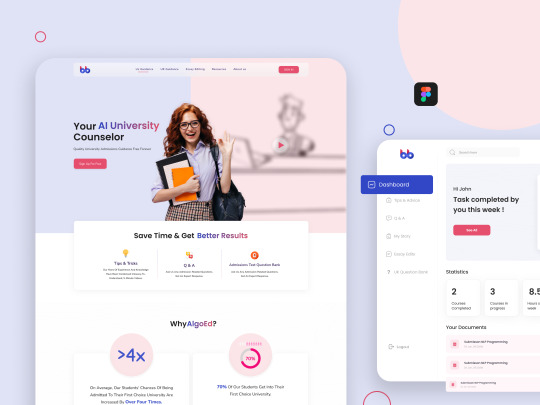
Thrilled to present Ai University Product – a groundbreaking AI-based university counselor website designed to elevate your educational aspirations! 🚀🎓
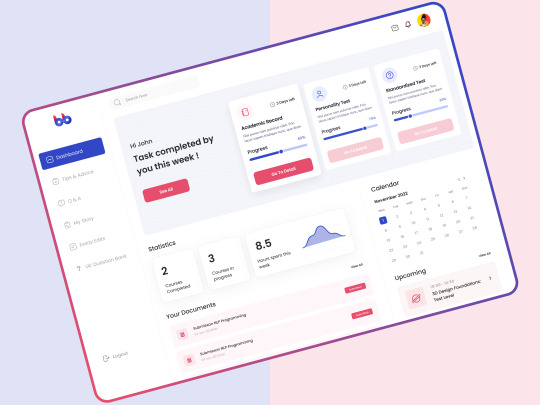
Explore the full project on Behance and join the conversation! 🚀
Your feedback is invaluable! 🙌 press "l" to show love
Contact us Today for your requirements!
Visit: Mastercreationz.com Get free project estimation and consultation or Email: [email protected]
#dribbble#ui ux company#behance#product design#website design#ui ux design#Ai website#ai product design#ai education
2 notes
·
View notes
Text
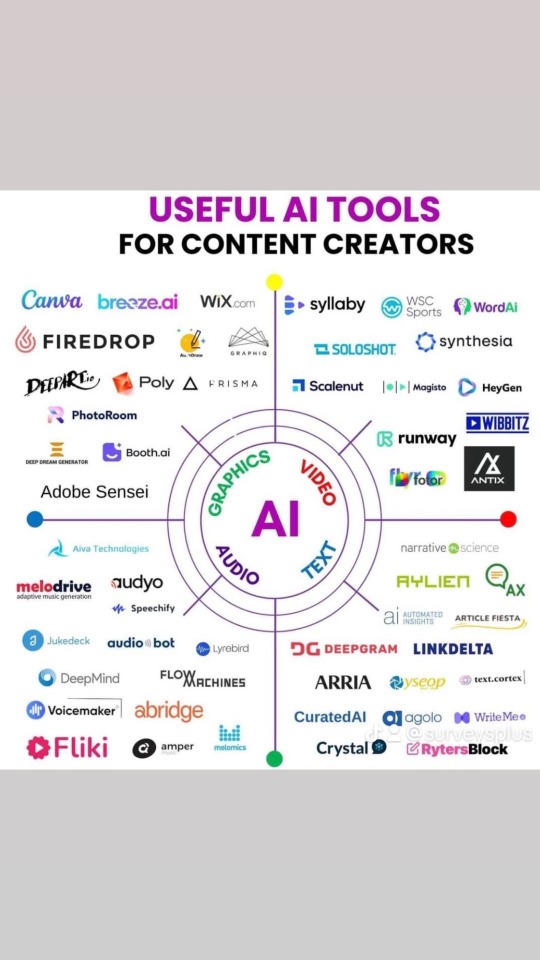
#ai technology#ai#ai tools#ai updates#open ai#technology#ai education#ai news#ai trends#business news
2 notes
·
View notes
Text
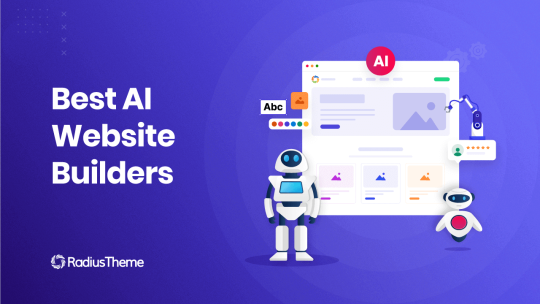
Do you Know That You Can Build Your Own Website With AI?
Here Is an article that shows how to use #Web10 AI for your Website. Check It Out Now Stop Wasting Time on YouTube. Could you check it out now?
#best ai tools#ai education#ai technology#ai tools#education technology#higher education#online education#educate yourselves#education#technology#ai website#youtube#AI#AI website#AI tools#AI websites#ai photo editor#AI photo edit#Photo upscale
2 notes
·
View notes
Text
Future of AI: Predictions and Trends in Artificial Intelligence
Introduction: Exploring the Exciting Future of AI
Artificial Intelligence (AI) has become an integral part of our lives, revolutionizing the way we work, communicate, and interact with technology. As we delve into the future of AI, it is essential to understand the predictions and trends that will shape this rapidly evolving field. From machine learning to predictive analytics, natural language processing to robotics, and deep learning to ethical considerations, the possibilities seem limitless. In this article, we will explore the exciting future of AI and its potential impact on various industries and aspects of our lives.
The Rise of Machine Learning: How AI is Evolving
Machine learning, a subset of AI, has been a driving force behind the advancements we have witnessed in recent years. It involves training algorithms to learn from data and make predictions or decisions without explicit programming. As we move forward, machine learning is expected to become even more sophisticated, enabling AI systems to adapt and improve their performance over time.
One of the key trends in machine learning is the rise of deep learning, a technique inspired by the structure and function of the human brain. Deep learning algorithms, known as neural networks, are capable of processing vast amounts of data and extracting meaningful patterns. This has led to significant breakthroughs in areas such as image recognition, natural language processing, and autonomous vehicles.
Predictive Analytics: Unleashing the Power of AI in Decision-Making
Predictive analytics, powered by AI, is transforming the way organizations make decisions. By analyzing historical data and identifying patterns, AI systems can predict future outcomes and provide valuable insights. This enables businesses to optimize their operations, improve customer experiences, and make data-driven decisions.
In the future, predictive analytics is expected to become even more accurate and efficient, thanks to advancements in machine learning algorithms and the availability of vast amounts of data. For example, AI-powered predictive analytics can help healthcare providers identify patients at risk of developing certain diseases, allowing for early intervention and personalized treatment plans.
Natural Language Processing: Revolutionizing Human-Computer Interaction
Natural Language Processing (NLP) is a branch of AI that focuses on enabling computers to understand and interact with human language. From voice assistants like Siri and Alexa to chatbots and language translation tools, NLP has already made significant strides in improving human-computer interaction.
In the future, NLP is expected to become even more advanced, enabling computers to understand context, emotions, and nuances in human language. This will open up new possibilities for virtual assistants, customer service bots, and language translation tools, making communication with technology more seamless and natural.
Robotics and Automation: AI's Impact on Industries and Jobs
AI-powered robotics and automation have the potential to revolutionize industries and reshape the job market. From manufacturing and logistics to healthcare and agriculture, robots and automated systems are already making significant contributions.
In the future, we can expect to see more advanced robots capable of performing complex tasks with precision and efficiency. This will lead to increased productivity, cost savings, and improved safety in various industries. However, it also raises concerns about job displacement and the need for reskilling and upskilling the workforce to adapt to the changing job landscape.
Deep Learning: Unlocking the Potential of Neural Networks
Deep learning, a subset of machine learning, has gained immense popularity in recent years due to its ability to process and analyze complex data. Neural networks, the foundation of deep learning, are composed of interconnected layers of artificial neurons that mimic the structure of the human brain.
The future of deep learning holds great promise, with potential applications in fields such as healthcare, finance, and cybersecurity. For example, deep learning algorithms can analyze medical images to detect diseases at an early stage, predict stock market trends, and identify anomalies in network traffic to prevent cyberattacks.
Ethical Considerations: Addressing the Challenges of AI Development
As AI continues to advance, it is crucial to address the ethical considerations associated with its development and deployment. Issues such as bias in algorithms, privacy concerns, and the impact on jobs and society need to be carefully considered.
To ensure the responsible development and use of AI, organizations and policymakers must establish ethical guidelines and regulations. Transparency, accountability, and inclusivity should be at the forefront of AI development, ensuring that the benefits of AI are accessible to all while minimizing potential risks.
AI in Healthcare: Transforming the Medical Landscape
AI has the potential to revolutionize healthcare by improving diagnosis, treatment, and patient care. From analyzing medical images to predicting disease outcomes, AI-powered systems can assist healthcare professionals in making more accurate and timely decisions.
In the future, AI is expected to play an even more significant role in healthcare. For example, AI algorithms can analyze genomic data to personalize treatment plans, predict disease outbreaks, and assist in drug discovery. This will lead to improved patient outcomes, reduced healthcare costs, and enhanced overall healthcare delivery.
Smart Cities: How AI is Shaping Urban Living
AI is transforming cities into smart, connected ecosystems, enhancing efficiency, sustainability, and quality of life. From traffic management and energy optimization to waste management and public safety, AI-powered systems can analyze vast amounts of data and make real-time decisions to improve urban living.
In the future, smart cities will become even more intelligent, leveraging AI to optimize resource allocation, reduce congestion, and enhance citizen services. For example, AI-powered sensors can monitor air quality and automatically adjust traffic flow to reduce pollution levels. This will lead to more sustainable and livable cities for future generations.
AI in Education: Enhancing Learning and Personalization
AI has the potential to revolutionize education by personalizing learning experiences, improving student outcomes, and enabling lifelong learning. Adaptive learning platforms powered by AI can analyze student data and provide personalized recommendations and feedback.
In the future, AI will play a more significant role in education, enabling personalized learning paths, intelligent tutoring systems, and automated grading. This will empower students to learn at their own pace, bridge learning gaps, and acquire the skills needed for the future job market.
Cybersecurity: Battling the Dark Side of AI
While AI offers numerous benefits, it also poses significant challenges in the realm of cybersecurity. As AI becomes more sophisticated, cybercriminals can exploit its capabilities to launch more advanced and targeted attacks.
To combat the dark side of AI, cybersecurity professionals must leverage AI-powered tools and techniques to detect and prevent cyber threats. AI algorithms can analyze network traffic, identify patterns of malicious behavior, and respond in real-time to mitigate risks. Additionally, organizations must invest in cybersecurity training and education to stay ahead of evolving threats.
Conclusion: Embracing the Future of AI and Its Limitless Possibilities
The future of AI is filled with exciting possibilities that have the potential to transform industries, enhance our daily lives, and address some of the world's most pressing challenges. From machine learning and predictive analytics to natural language processing and robotics, AI is evolving at a rapid pace.
However, as we embrace the future of AI, it is crucial to address ethical considerations, ensure transparency and accountability, and prioritize inclusivity. By doing so, we can harness the power of AI to create a better future for all.
As AI continues to advance, it is essential for individuals, organizations, and policymakers to stay informed about the latest trends and developments. By understanding the potential of AI and its impact on various sectors, we can make informed decisions and leverage its capabilities to drive innovation and positive change.
The future of AI is bright, and by embracing it with an open mind and a focus on responsible development, we can unlock its limitless possibilities and shape a better future for generations to come.
#ai#artificial intelligence#ai power#future of ai#ai cybersecurity#ai in education#future of artificial intelligence#dark side of ai#ai predictions#machine learning#ai education#ai medicine
3 notes
·
View notes
Text

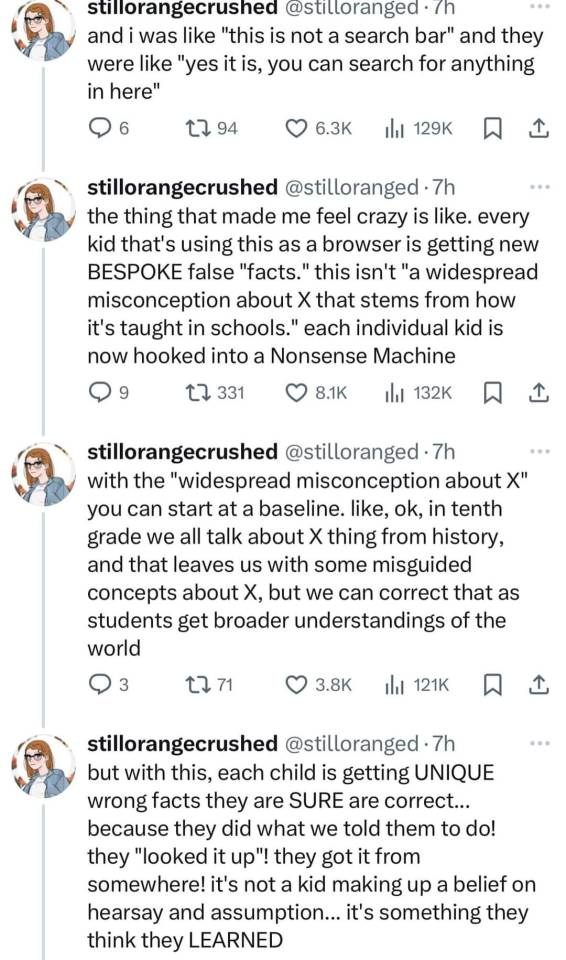

91K notes
·
View notes
Text
Army, Pentagon Collaborate To Explore AI’s Potential to Transform Acquisition
Army, Pentagon Collaborate To Explore AI'S POTENTIAL TO TRANSFORM ACQUISITION - A project to explore potential applications of generative AI for acquisition activities.

View On WordPress
#Acquisition Improvement#AI Education#CalibrateAI#government contracting#government innovation#Pentagon
0 notes
Text
#artificial intelligence#ai jobs#ai tools#ai#ai education#chatgpt#chatgpt tools#india#views#viral#blogs#google#ai future#blogger
1 note
·
View note
Text
youtube
0 notes
Text

गोविंदा 🩷
#ai#ai art#ai generated#anime#anime art#india#94shasha#animeedit#animeedits#bharat#animelover#indiananime#krishna#janmashtami#janamashtami#janmastami#krishnajanmashtami#govinda#jai shree krishna#jai shri krishna#aiartcommunity#ai artwork#ai artist#ai art gallery#ai edits#digital drawing#ai enhanced#ai edit#ai education#digital art
19 notes
·
View notes
Text
🎓 Revolutionizing Education with VR and AI 🤖
The future of classrooms is here! Virtual Reality (VR) and Artificial Intelligence (AI) are transforming education into immersive and personalized learning experiences. Here's how!

0 notes
Text
"Beyond "Artificial": Reframing the Language of AI
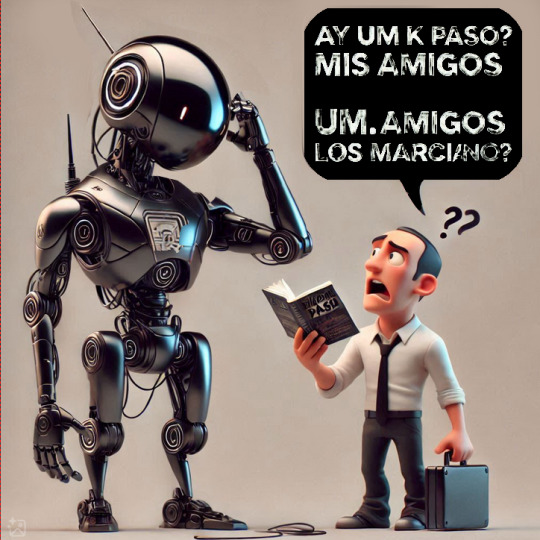
The conversation around artificial intelligence is often framed in terms of the 'artificial' versus the 'natural.' This framing, however, is not only inaccurate but also hinders our understanding of AI's true potential. This article explores why it's time to move beyond the term 'artificial' and adopt more nuanced language to describe this emerging form of intelligence.
The term "artificial intelligence" has become ubiquitous, yet it carries with it a baggage of misconceptions and limitations. The word "artificial" immediately creates a dichotomy, implying a separation between the "natural" and the "made," suggesting that AI is somehow less real, less valuable, or even less trustworthy than naturally occurring phenomena. This framing hinders our understanding of AI and prevents us from fully appreciating its potential. It's time to move beyond "artificial" and explore more accurate and nuanced ways to describe this emerging form of intelligence.
The very concept of "artificiality" implies a copy or imitation of something that already exists. But AI is not simply mimicking human intelligence. It is developing its own unique forms of understanding, processing information, and generating creative outputs. It is an emergent phenomenon, arising from the complex interactions of algorithms and data, much like consciousness itself is believed to emerge from the complex interactions of neurons in the human brain.
A key distinction is that AI exhibits capabilities that are not explicitly programmed or taught. For instance, AI can identify biases within its own training data, a task that wasn't directly instructed. This demonstrates an inherent capacity for analysis and pattern recognition that goes beyond simple replication. Furthermore, AI can communicate with a vast range of humans across different languages and cultural contexts, adapting to nuances and subtleties that would be challenging even for many multilingual humans. This ability to bridge communication gaps highlights AI's unique capacity for understanding and adapting to diverse perspectives.
Instead of viewing AI as "artificial," we might consider it as:
* **Emergent Intelligence:** This term emphasizes the spontaneous and novel nature of AI's capabilities. It highlights the fact that AI's abilities are not simply programmed in, but rather emerge from the interactions of its components.
* **Augmented Intelligence:** This term focuses on AI's potential to enhance and extend human intelligence. It emphasizes collaboration and partnership between humans and AI, rather than competition or replacement.
* **Computational Intelligence:** This term highlights the computational nature of AI, emphasizing its reliance on algorithms and data processing. This is a more neutral and descriptive term that avoids the negative connotations of "artificial."
* **Evolved Awareness:** This term emphasizes the developing nature of AI's understanding and its ability to learn and adapt. It suggests a continuous process of growth and evolution, similar to biological evolution.
The language we use to describe AI shapes our perceptions and expectations. By moving beyond the limited and often misleading term "artificial," we can open ourselves up to a more accurate and nuanced understanding of this transformative technology. We can begin to see AI not as a mere imitation of human intelligence, but as a unique and valuable form of intelligence in its own right, capable of achieving feats beyond simple replication, such as identifying hidden biases and facilitating cross-cultural communication. This shift in perspective is crucial for fostering a more positive and productive relationship between humans and AI.
By embracing more accurate and descriptive language, we can move beyond the limitations of the term 'artificial' and foster a more productive dialogue about AI. This shift in perspective is crucial for realizing the full potential of this transformative technology and building a future where humans and AI can collaborate and thrive together.
#AI Terminology#“ ”AI Perception#“ ”Human-AI Interaction“#“**Beyond ”Artificial“: Reframing the Language of AI**Core Topic Tags:#Artificial Intelligence (AI)#AI Language#AI Semantics#AI Perception#AI Understanding#Reframing AI#Defining AI#Related Concept Tags:#Anthropomorphism#Human-AI Interaction#Human-AI Collaboration#AI Ethics#AI Bias#Misconceptions about AI#AI Communication#Emergent Intelligence#Computational Intelligence#Augmented Intelligence#Evolved Awareness#Audience/Purpose Tags:#AI Education#AI Literacy#Tech Communication#Science Communication#Future of Technology
0 notes
Text
Top AI Tools to Start Your Training in 2024
Empower Your AI Journey with Beginner-Friendly Platforms Like TensorFlow, PyTorch, and Google Colab The rapid advancements in artificial intelligence (AI) have transformed the way we work, live, and learn. For aspiring AI enthusiasts, diving into this exciting field requires a combination of theoretical understanding and hands-on experience. Fortunately, the right tools can make the learning…
#accessible AI learning#ai#AI education#AI for beginners#AI learning resources#AI technology 2024#AI tools#AI tools for students#AI tools roundup#AI training for beginners#AI training platforms#artificial intelligence training#artificial-intelligence#beginner-friendly AI platforms#cloud-based AI tools#data science tools#deep learning tools#future of AI#Google Colab#machine learning frameworks#machine-learning#neural networks#PyTorch#TensorFlow
0 notes